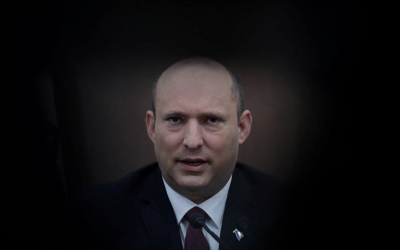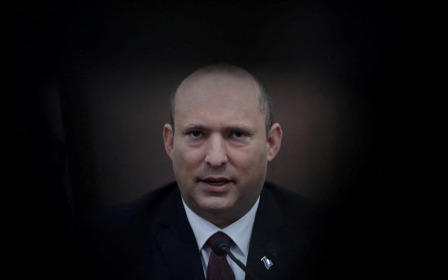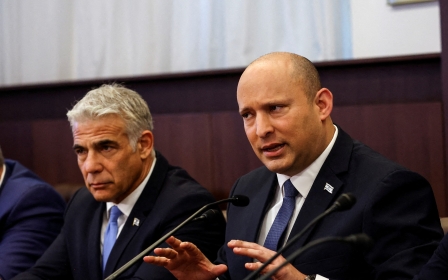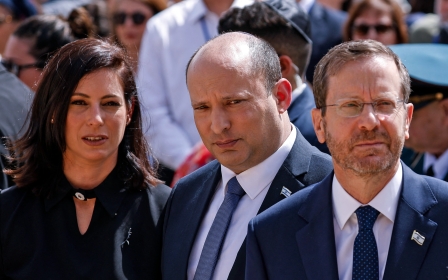Israel's Knesset set to dissolve by midnight triggering snap election

Israel was headed on Wednesday towards its fifth election in less than four years, plunging it deeper into political uncertainty as it grapples with rising living costs and renewed international efforts to revive a nuclear deal with Iran.
Prime Minister Naftali Bennett moved last week to dissolve parliament after infighting made his ruling coalition no longer tenable.
The Knesset set a deadline for midnight on Wednesday for a final vote to dissolve.
Lawmakers raced to pass as many laws as possible on Wednesday, before the deadline passed.
Once the calling of a snap election gets the Knesset's final approval, Israel's foreign minister, Yair Lapid, will take over from Bennett as prime minister of a caretaker government with limited powers.
New MEE newsletter: Jerusalem Dispatch
Sign up to get the latest insights and analysis on Israel-Palestine, alongside Turkey Unpacked and other MEE newsletters
But even with lawmakers grappling over the exact election date, either 25 October or 1 November, the campaign has already become dominated by the possible comeback of former prime minister Benjamin Netanyahu.
Lapid and Bennett ended Netanyahu's record reign a year ago by forming a rare alliance of rightists, liberals and Arab parties, which lasted longer than many expected.
The clearest sign of the coalition's weakness came earlier this month when a bill extending Israeli civil law rights to settlers in the occupied West Bank was defeated in parliament.
The law, which would normally enjoy broad support in parliament and has been repeatedly renewed over the past five decades, became engulfed in the increasingly bitter climate between the government and opposition.
Netanyahu eyes sixth term
Netanyahu, now opposition leader, has been delighted by the end of what he has called the worst government in Israel's history.
He hopes to win a sixth term in office despite being on trial for corruption on charges he denies.
Surveys have shown his right-wing Likud party leading the polls but still short of a governing majority despite support of allied religious and nationalist parties.
Lawmakers from the pro-Netanyahu bloc have said they were working to form a new government before parliament dissolves.
That scenario, which appears remote, would scupper an early election.
The political shakeup will not affect US President Joe Biden's visit to Israel next month.
Biden will visit the country, regardless of who is prime minister of Israel, US ambassador to Israel Thomas Nides told Axios.
Middle East Eye delivers independent and unrivalled coverage and analysis of the Middle East, North Africa and beyond. To learn more about republishing this content and the associated fees, please fill out this form. More about MEE can be found here.





